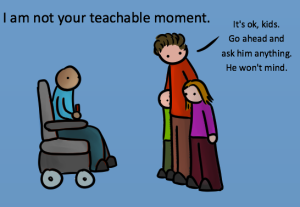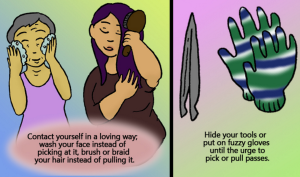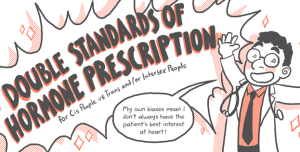
Source: Huffington Post
I always said that I would die if my mother ever died – that I just wouldn’t know how to go on because of the monumental role she played in my life. But here I am, with my mother having passed away three years ago.
I’m not only still here – I’ve managed to find blissful happiness in the midst of my loss.
This wasn’t always the case.
I was in an utterly numb daze for about a year and a half, or more, and the only thing that cracked the numbness was a conscious effort to stop denying the feelings of sadness that I carry about my mom’s death.
It was only at this point that I was able to begin processing what this loss means for my life, how it impacts me on a daily basis, and how I can heal at the pace that feels right to me.
Oftentimes our knee-jerk reaction to the death of a loved one is to scramble as hard as we possibly can to retain or regain normalcy – to just get over it and not have our lives taken over by grief.
This makes sense as a logical defense against the chilling, draining, and haunting force that grief can be, but stunting the grieving process will only compound the wall of bricks that you probably already feel like you’re carrying around on your shoulders.
So here are a few nuggets of insight, not from an expert on grieving, but from someone who has realized just how important it is to learn to feel comfortable with the discomfort of grief.
You Will Never ‘Get Over It’
I’m not sure why there’s a widely held belief that “getting over” the loss of a loved one should be like a high-speed hurdle race, let alone possible in the first place.
You will never get over it, and you’re not supposed to.
It will never be okay that your loved one died, and accepting this truth is perhaps the most enlightening and freeing thing you can do. It will allow for a sense of peace around the many complicated emotions that you may be experiencing.
Realizing that it will never be okay that my mom died so early and that I’ll carry this with me for the rest of my life was indescribably liberating. I could finally stop looking for the magical answer to my grief and simply sit still with it.
I was so closed off from the sadness surrounding my mom’s death because the task of “getting over it” seemed overwhelmingly impossible.
Since I was told there was an end point to the journey, and it felt like I would inevitably fail at grieving the loss of my mom to completeness, I didn’t even want to begin.
There is no end point or end goal in grieving. Everything you experience after the death of your loved one will be through the lens of that loss.
That seems like an inherently depressing suggestion, but it doesn’t have to be.
Sometimes it is. Sometimes the things I accomplish and the happy news I have are shadowed by the fact that my mom isn’t around anymore to hear about them. But more often than not, I can treat this lens of grief as an honorary nod to my mom.
Either way, accepting – even embracing – the fact that there is no “getting over it” and no end point to grieving will take a whole lot of pressure off of you.
Engage with Grieving at Your Own Pace
Since there’s no end point to grieving, we shouldn’t feel pressured to dive head-first into grieving to get it over with – or resist it altogether because it’s a race we don’t feel in any way equipped to enter into.
While neither all-in nor all-out approaches to grieving are sustainable, I think it’s natural to traverse somewhere back and forth between the two.
Dig in and scale back when you need to. You’ll know what’s best for your wellbeing. And sometimes it’s not something you can necessarily control.
You’ll pass by someone on the street wearing the same shirt your loved one wore when they passed away, and you’ll feel like you’ve been punched in the gut. Other times, you’ll find an old letter wedged between the pages of a book you’re re-reading, and you’ll sit comfortably with both a smile and tears spreading across your face.
Trust yourself and your boundaries. You’ll find the right balance of grieving.
Things are in no way smooth sailing once you find that balance, but certainly more manageable.
Tell Your Support System What You Need
Most people are really bad at talking about death – like offensively bad. This is probably not news to you.
Sometimes even I don’t know what to say to people who have lost a loved one – probably because there’s nothing you can say that feels adequately weighted.
That being said, there’s a strong possibility you’ll have to be very up front about your needs and wants from your support system.
I realize that not everyone has a support system in the first place, but even if you’re one of the lucky ones, chances are you’ll have to teach them how to support you. And doing so will make allowing yourself to grieve a whole lot less scary.
Do you want people to ask you questions about your experience losing a loved one and the grieving process that follows? Or would you rather they only engage with you in conversation about it when you bring it up yourself? This is just one place you may have to guide them.
Do you want them to give you space when you’re having a hard day? Or would you rather they keep you company and smother you with chocolate?
Telling your support system what you need from them will be a huge relief for everyone involved.
They won’t have to make guesses about how you’d like to be supported around something nobody is taught how to deal with, and you’ll end up feeling a lot better supported.
Find Ways to Honor Your Loved One
You may find that much of your life is already informed by the loss of your loved one, ranging from financial to emotional impacts, but finding ways to mindfully and deliberately honor and engage with the love you still have for them can feel really freaking cathartic.
It can also be a way to engage with your grief in a bit of a different way than we may naturally fall into.
The Gloria Steinem quote about women living out the unlived lives of their mothers became particularly poignant for me when I lost my mom.
My mom’s lack of health insurance undoubtedly played a part in her late gynecologic cancer diagnosis and sub-par treatment. I’ve chosen to honor her, my continuing love for her, and how much I miss her in the work that I do as a reproductive healthcare access advocate.
Writing them a letter when you’re especially missing them, volunteering for a cause they cared about or were impacted by, or visiting a place that was special to them are just a few examples of ways you can continue to feel connected to your loved one in a healthy way.
***
Wherever you are on your journey with grief, remember that you’re right where you’re supposed to be.
It isn’t a race, and you’re the expert on your own grieving process.
So trust yourself to lead the way.
[do_widget id=”text-101″]
Sara Alcid is a Contributing Writer for Everyday Feminism and is a young feminist living and working in Washington, DC as a reproductive health and justice advocate. Sara loves thinking, reading and writing about the socially and personally transformative power of feminism, queer issues, and women’s health. Follow her on Twitter @SaraAlcid. Read her articles here and book her for speaking engagements here.
Search our 3000+ articles!
Read our articles about:
Our online racial justice training
Used by hundreds of universities, non-profits, and businesses.
Click to learn more
Most Read Articles
- « Previous
- 1
- …
- 30
- 31
- 32



















